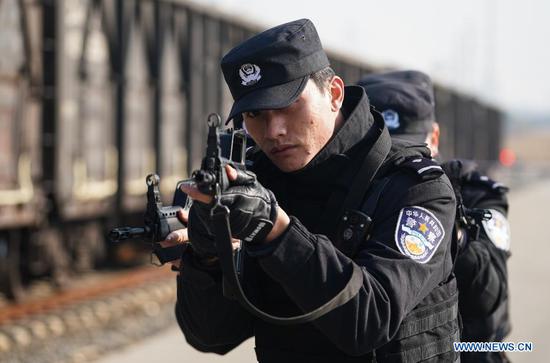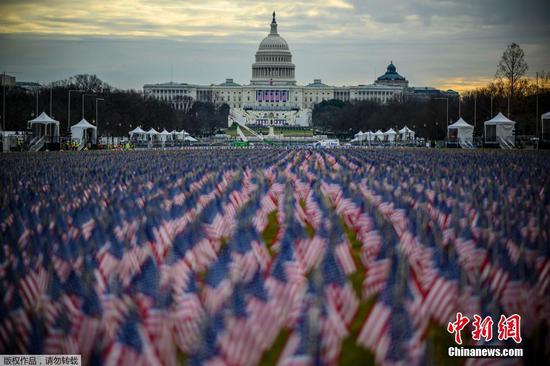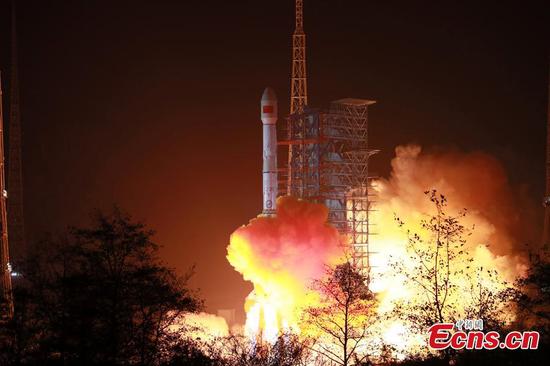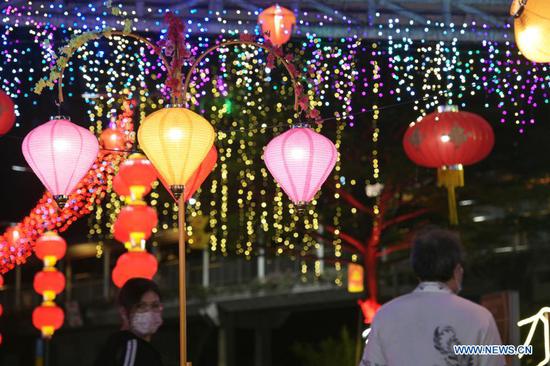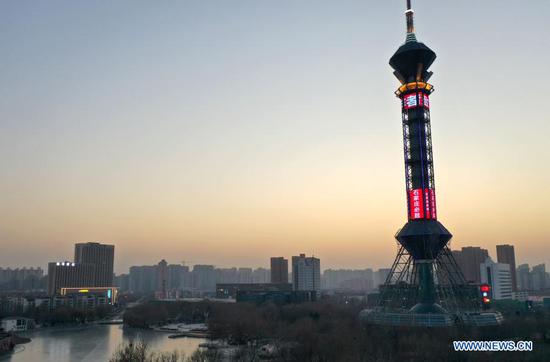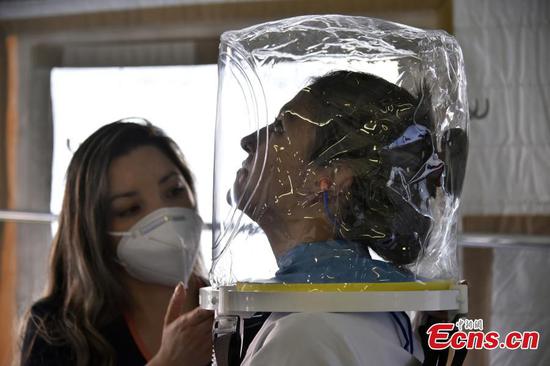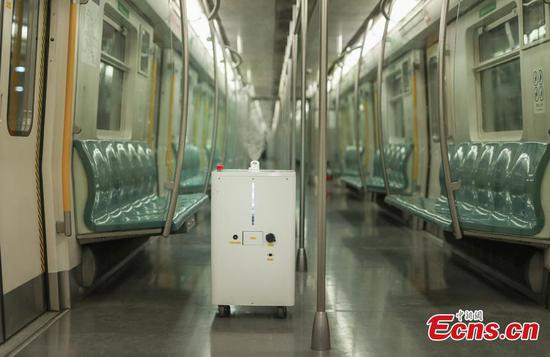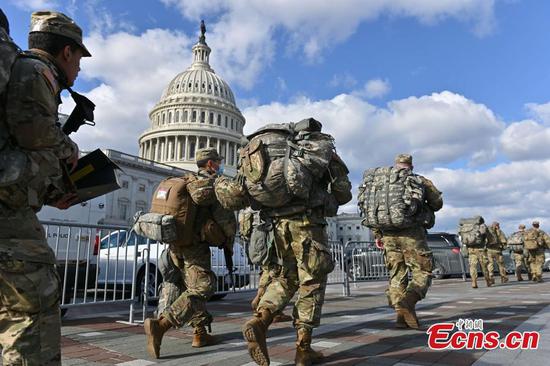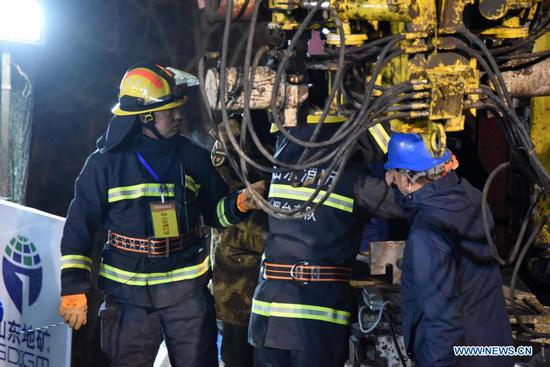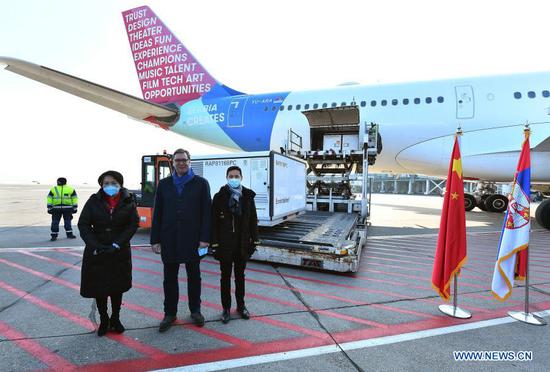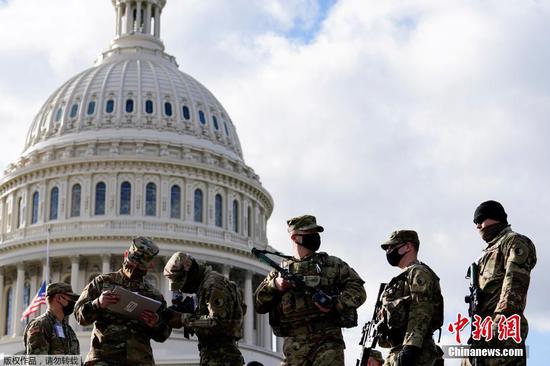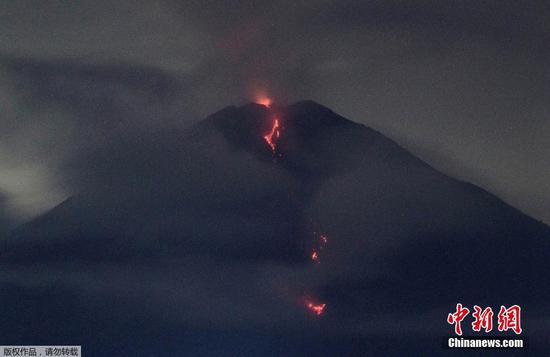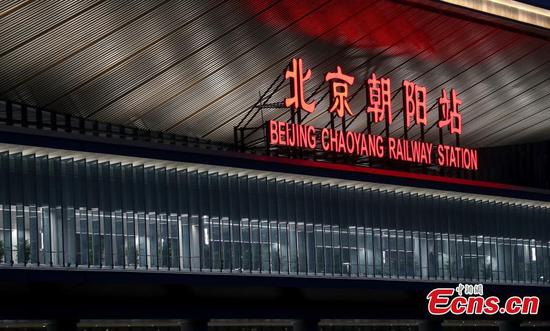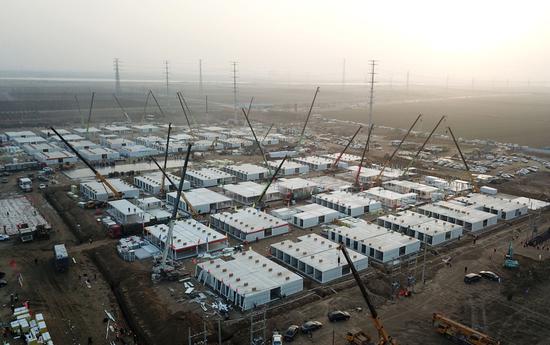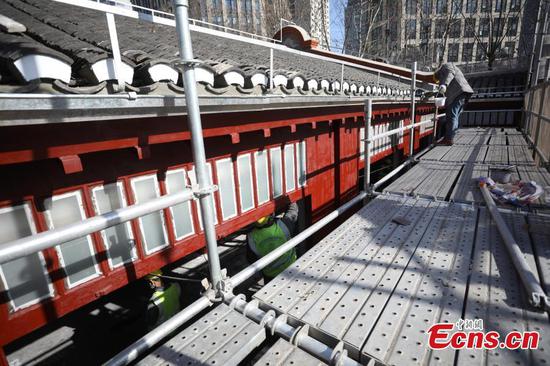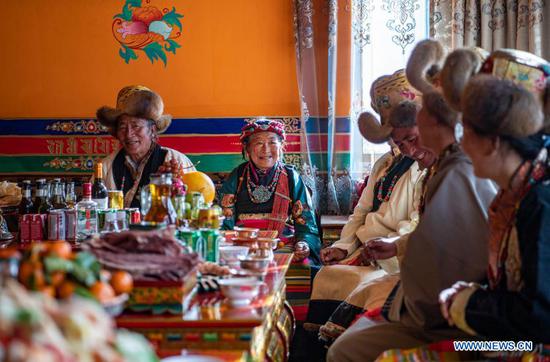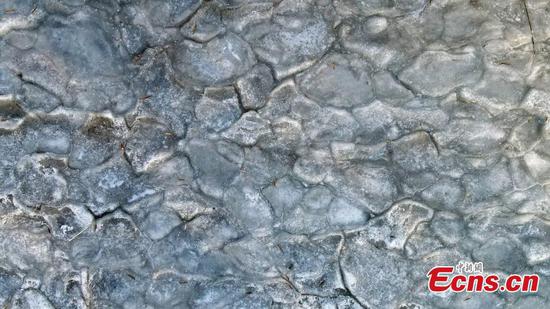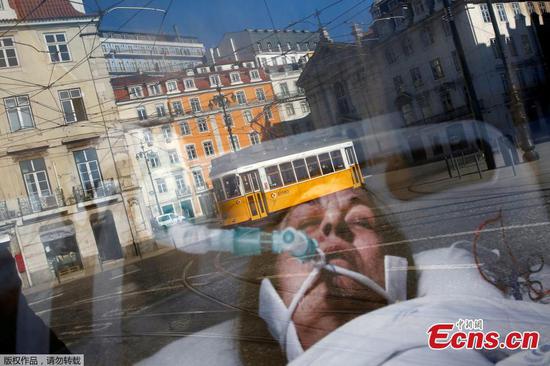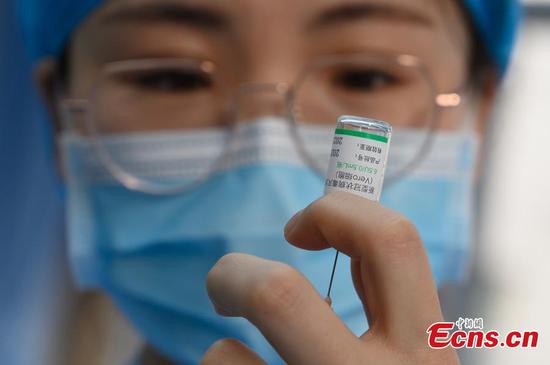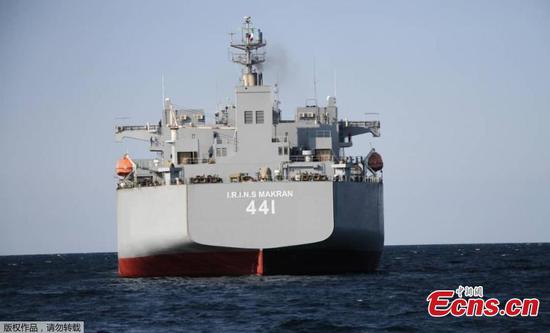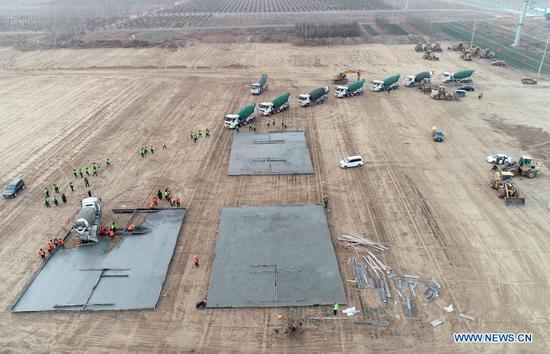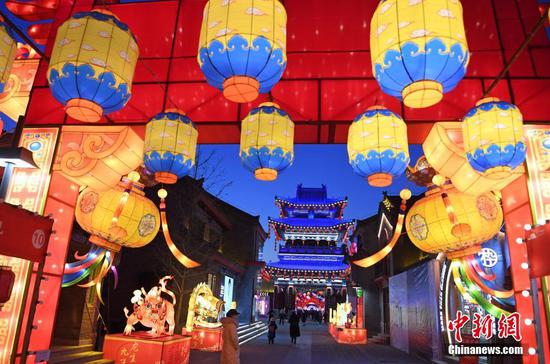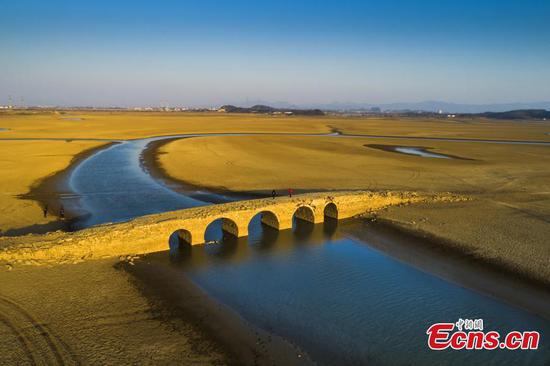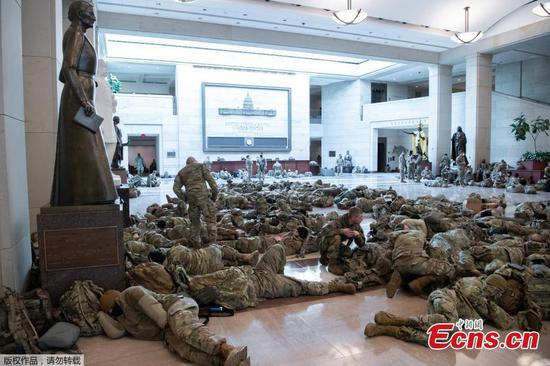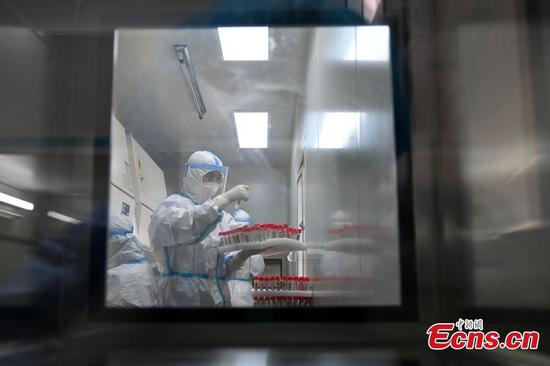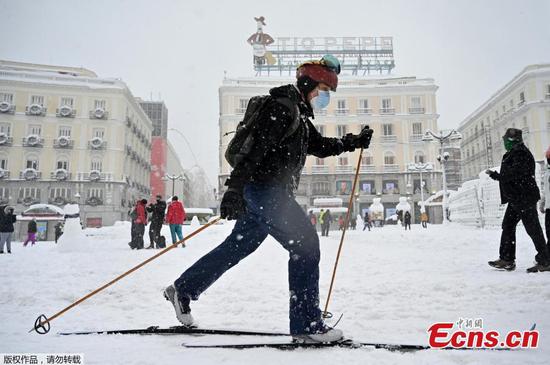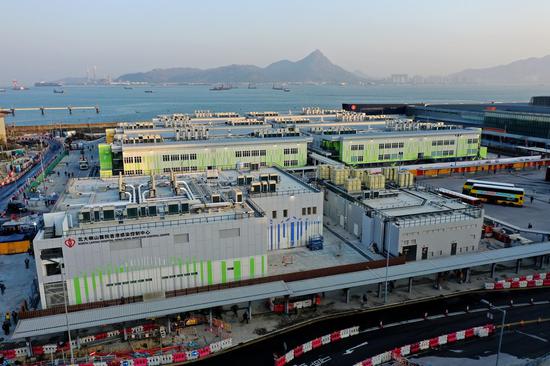
Aerial photo taken on Jan. 19, 2021 shows a temporary hospital funded by the central government for treating COVID-19 patients in Hong Kong, south China. (Xinhua)
The construction of a temporary hospital funded by the central government for treating COVID-19 patients in the Hong Kong Special Administrative Region (HKSAR) was completed Wednesday.
The North Lantau Hospital Hong Kong Infection Control Center, built next to another treatment facility at AsiaWorld-Expo, is capable of providing 136 wards and 816 negative pressure beds.
Covering a land area of 30,000 square meters, the hospital is comprised of six inpatient buildings, one medical center and other facilities. Its design is in line with the standard for a permanent structure.
Hong Kong's Hospital Authority said it aims to put the new hospital into service next month, which will take the number of beds that the central government helped add in Hong Kong to about 1,800 and will greatly ease the pressure on the local public health system.
As the first hospital in Hong Kong that has all its rooms equipped with a negative pressure system, its construction has faced immense complexity and difficulty.
"The standard of the project, although called a 'temporary hospital,' is actually for a permanent structure, such as being able to resist the hurricane of the signal No. 10," said Zhang Yi, one of the directors of the project and also general manager of China State Construction International Medical Industry Development Co., Ltd.
To build a hospital like this normally takes four years in Hong Kong. However, with new building technology and construction going on round-the-clock, the project was completed in merely four months.
While the construction time was much shortened, the quality was guaranteed and a high safety standard was achieved, providing a valuable reference for health care facilities construction in Hong Kong, HKSAR Chief Executive Carrie Lam said Wednesday at the completion and handover ceremony.
With a world-class negative pressure system, the air in the hospital rooms is refreshed 12 times per hour and 99.97 percent of viruses can be filtered. Every room is equipped with a delivery window that can be locked from both sides, and articles transferred through the window can be disinfected.
Doors installed with a sensing system allow patients and medical workers to pass without touch the handle.
After inspecting the hospital rooms, a Hong Kong public health expert said the facility is even capable to cope with the Ebola virus.
The hospital is the last of the three central government-supported projects for Hong Kong to combat COVID-19. The other two, a mass testing program and the AsiaWorld-Expo treatment facility, were completed in September and October 2020, respectively.
"The project demonstrated the central government's support for Hong Kong's anti-epidemic work and care for Hong Kong residents," Lam said.
To help Hong Kong fight COVID-19, the central government has ensured sufficient daily necessities and medical materials for Hong Kong and assisted the HKSAR government in taking home residents stranded in the mainland and overseas since the epidemic outbreak.
Hong Kong will also be prioritized in mainland vaccine supply and a certain amount of doses will be specially allocated for Hong Kong residents when necessary.
With the fourth wave of the epidemic, the tally of COVID-19 infections has risen to 9,797 in Hong Kong, indicating a still grim situation.
Fighting the epidemic remains high on the government's agenda, Lam said, vowing more efforts to realize the goal of zero new infections in Hong Kong at an early date.
"The resources, nucleic acid tests and vaccines as well as the temporary hospital completed today, have all demonstrated the central government's care for the HKSAR," Lam said.
It is proven that the central government is forever the strongest backbone of the anti-epidemic work of the HKSAR, she added.









